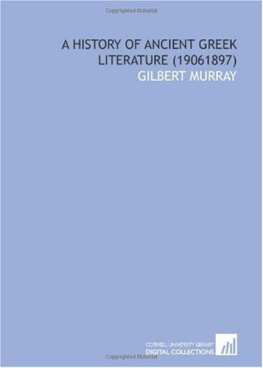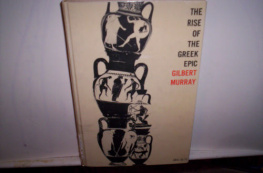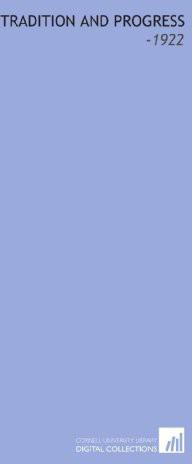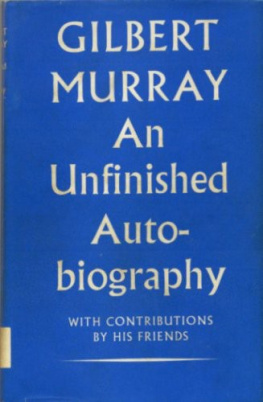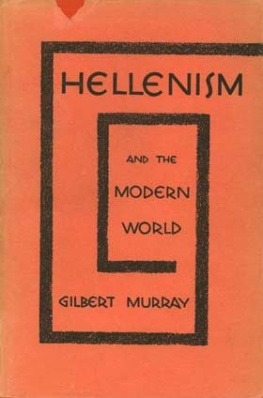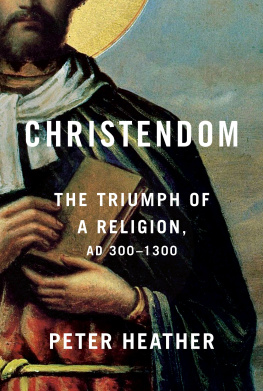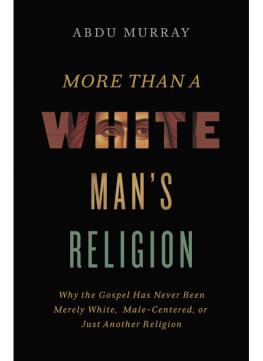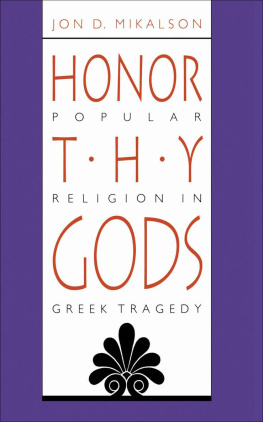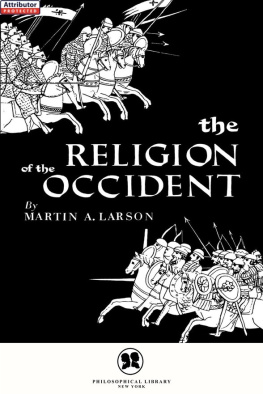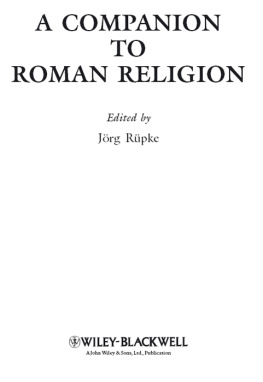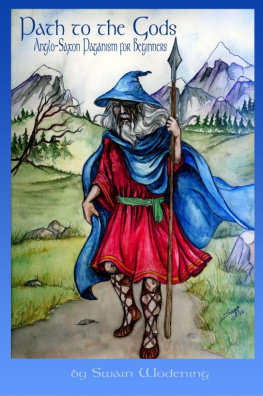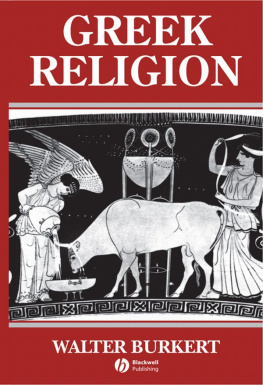Gilbert Murray - Five Stages of Greek Religion
Here you can read online Gilbert Murray - Five Stages of Greek Religion full text of the book (entire story) in english for free. Download pdf and epub, get meaning, cover and reviews about this ebook. year: 2003, publisher: Dover Publications, genre: Religion. Description of the work, (preface) as well as reviews are available. Best literature library LitArk.com created for fans of good reading and offers a wide selection of genres:
Romance novel
Science fiction
Adventure
Detective
Science
History
Home and family
Prose
Art
Politics
Computer
Non-fiction
Religion
Business
Children
Humor
Choose a favorite category and find really read worthwhile books. Enjoy immersion in the world of imagination, feel the emotions of the characters or learn something new for yourself, make an fascinating discovery.

- Book:Five Stages of Greek Religion
- Author:
- Publisher:Dover Publications
- Genre:
- Year:2003
- Rating:3 / 5
- Favourites:Add to favourites
- Your mark:
- 60
- 1
- 2
- 3
- 4
- 5
Five Stages of Greek Religion: summary, description and annotation
We offer to read an annotation, description, summary or preface (depends on what the author of the book "Five Stages of Greek Religion" wrote himself). If you haven't found the necessary information about the book — write in the comments, we will try to find it.
Five Stages of Greek Religion — read online for free the complete book (whole text) full work
Below is the text of the book, divided by pages. System saving the place of the last page read, allows you to conveniently read the book "Five Stages of Greek Religion" online for free, without having to search again every time where you left off. Put a bookmark, and you can go to the page where you finished reading at any time.
Font size:
Interval:
Bookmark:

GILBERT MURRAY was born in 1886 in New South Wales. He was appointed Regius Professor of Greek at Oxford in 1908. He has written on many aspects of Greek culture and literature, and has translated many Greek plays. His books include A History of Ancient Greek Literature (1897), The Rise of the Greek Epic (1907), Euripides and His Age (1918), and The Classical Tradition in Poetry ( 1927).
Four Stages of Greek Religion was published in 1912; the addition of another chapter, in 1925, made it Five Stages of Greek Religion. In 1951, Mr. Murray wrote a long introduction to a third edition. It is this edition, with the introduction, that is reprinted here.

Bibliographical Note
This Dover edition, first published in 2002, is an unabridged republication of the 1955 Doubleday Anchor reprint of the Third Edition of the work originally published by the Beacon Press, Boston, 1951. That work, in turn, represents an expanded version of Mr. Murrays Four Stages of Greek Religion originally published by Henry Frowde, London, 1912.
Library of Congress Cataloging-in-Publication Data
Murray, Gilbert, 1866-1957.
Five stages of Greek religion / Gilbert Murray.
p. cm.
Originally published: 3rd ed. Garden City, N.Y : Doubleday, 1955.
Includes index.
9780486146379
1. GreeceReligion. I. Title.
BL783 .M87 2002
292.08dc21
2002074186
Manufactured in the United States of America
Dover Publications, Inc., 31 East 2nd Street, Mineola, N.Y 11501
Anyone who has been in Greece at Easter time, especially among the more remote peasants, must have been struck by the emotion of suspense and excitement with which they wait for the announcement Christos anest, Christ is risen! and the response Alths anest He has really risen! I have referred elsewhere to Mr. Lawsons old peasant woman, who explained her anxiety: If Christ does not rise tomorrow we shall have no harvest this year (Modern Greek Folklore, p. 573) . We are evidently in the presence of an emotion and a fear which, beneath its Christian colouring and, so to speak, transfiguration, is in its essence, like most of mans deepest emotions, a relic from a very remote pre-Christian past. Every spring was to primitive man a time of terrible anxiety. His store of food was near its end. Would the dead world revive, or would it not? The Old Year was dead; would the New Year, the Young King, born afresh of Sky and Earth, come in the Old Kings place and bring with him the new growth and the hope of life?
I hardly realized, when writing the earlier editions of this book, how central, how omnipresent, this complex of ideas was in ancient Greek religion. Attis, Adonis, Osiris, Dionysus, and the rest of the Year Gods were not eccentric divagations in a religion whose proper worship was given to the immortal Olympians; they are different names given in different circumstances to this one being who dies and is born again each year, dies old and polluted with past deaths and sins, and is reborn young and purified. I have tried to trace this line of tradition in an article for the Journal of Hellenic Studies for June 1951, and to show, incidentally, how many of the elements in the Christian tradition it has provided, especially those elements which are utterly alien from Hebrew monotheism and must, indeed, have shocked every orthodox Jew.
The best starting point is the conception of the series of Old Kings, each, when the due time comes, dethroned and replaced by his son, the Young King, with the help of the Queen Mother; for Gaia or Earth, the eternal Wife and Mother of each in turn, is always ready to renew herself. The new vegetation God each year is born from the union of the Sky-God and the Earth-Mother; or, as in myth and legend the figures become personified, he is the Son of a God and a mortal princess.
We all know the sequence of Kings in Hesiod. First Uranus (Sky), King of the World, and his wife Gaia (Earth); Uranus reigns till he is dethroned by his son Cronos with the help of Gaia; then Cronos and Rhea (Earth) reign till Cronos is dethroned by his son Zeus, with the help of Rhea; then Zeus reigns till... but here the series stops, since, according to the orthodox Olympian system, Zeus is the eternal King. But there was another system, underlying the Olympian, and it is to that other system that the Year-Kings belong. The Olympians are definite persons. They are immortal; they do not die and revive; they are not beings who come and go, in succession to one another. In the other series are the AttisAdonisOsiris type of gods, and especially Dionysus, whose name has been shown by Kretschmer to be simply the Thracian Deos or Dios nysos , Zeus-Young or Zeus-the-son. And in the Orphic tradition it is laid down that Zeus yields up his power to Dionysus and bids all the gods of the Cosmos obey him. The mother of Dionysus was Semel, a name which, like Gaia and Rhea, means Earth. The series is not only continuous but infinite; for on one side Uranus (Sky) was himself the son of Gaia the eternal, and on the other, every year a Zeus was succeeded by a Young Zeus.
The Young King, bearer of spring and the new summer, is the Saviour of the Earth, made cold and lifeless by winter and doomed to barrenness by all the pollutions of the past; the Saviour also of mankind from all kinds of evils, and bringer of a new Aion , or Age, to the world. Innumerable different figures in Greek mythology are personifications of him, from Dionysus and Heracles to the Dioscuri and many heroes of myth. He bears certain distinguishing marks. He is always the son of a God and a mortal princess. The mother is always persecuted, a mater dolorosa , and rescued by her son. The Son is always a Saviour; very often a champion who saves his people from enemies or monsters; but sometimes a Healer of the Sick, like Asclepius; sometimes, like Dionysus, a priest or hierophant with a thiasos, or band of worshippers; sometimes a Kings Son who is sacrificed to save his people, and mystically identified with some sacrificial animal, a lamb, a young bull, a horse or a fawn, whose blood has supernatural power. Sometimes again he is a divine or miraculous Babe, for whose birth the whole world has been waiting, who will bring his own Age or Kingdom and make all things new. His life is almost always threatened by a cruel king, like Herod, but he always escapes. The popularity of the Divine Babe is probably due to the very widespread worship of the Egyptian Child-God, Harpocrates. Egyptian also is the Virgin-Mother, impregnated by the holy Pneuma or Spiritus of the god, or sometimes by the laying on of his hand.
Besides the ordinary death and rebirth of the vegetation year god, the general conclusion to which these considerations point has many parallels elsewhere. Our own religious ideas are subject to the same tendencies as those of other civilizations. Men and women, when converted to a new religion or instructed in some new and unaccustomed knowledge, are extremely unwilling, and sometimes absolutely unable, to give up their old magical or religious practices and habits of thought. When African negroes are converted to Christianity and forbidden to practise their tribal magic, they are apt to steal away into the depths of the forest and do secretly what they have always considered necessary to ensure a good harvest. Not to do so would be too great a risk. When Goths were converted by battalions the change must have been more in names than in substance. When Greeks of the Mediterranean were forbidden to say prayers to a figure of Helios, the Sun, it was not difficult to call him the prophet Elias and go on with the same prayers and hopes. Not difficult to continue your prayers to the age-old Mother Goddess of all Mediterranean peoples, while calling her Mary, the Mother of Christ. Eusebius studied the subject, somewhat superficially, in his Praeparatio Evangelica, in which he argued that much old pagan belief was to be explained as an imperfect preparation for the full light of the Gospel. And it is certainly striking how the Anatolian peoples, among whom the seed of the early Church was chiefly sown, could never, in spite of Jewish monotheism, give up the beloved Mother Goddess for whom mankind craves, or the divine Faithful Son who will by his own sacrifice save his people. Where scientific knowledge fails man cannot but be guided by his felt needs and longings and aspirations.
Font size:
Interval:
Bookmark:
Similar books «Five Stages of Greek Religion»
Look at similar books to Five Stages of Greek Religion. We have selected literature similar in name and meaning in the hope of providing readers with more options to find new, interesting, not yet read works.
Discussion, reviews of the book Five Stages of Greek Religion and just readers' own opinions. Leave your comments, write what you think about the work, its meaning or the main characters. Specify what exactly you liked and what you didn't like, and why you think so.

